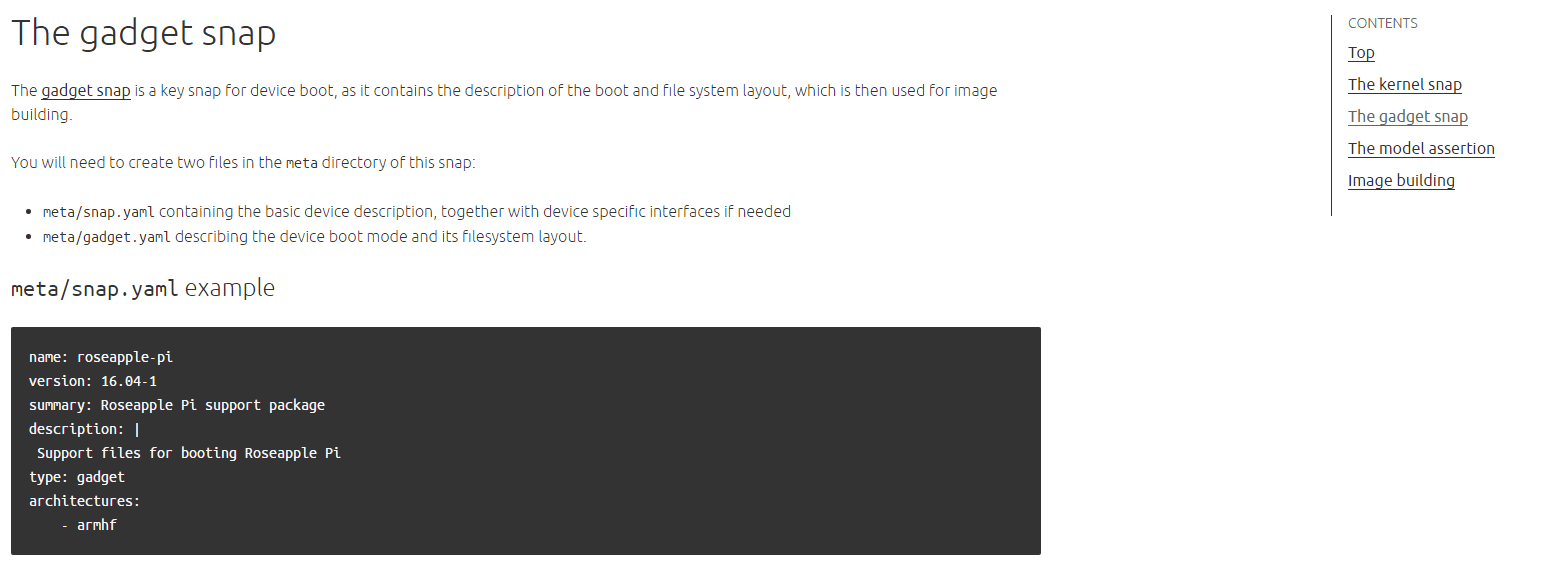How to build your own Ubuntu Core image and other documentation add-on
David Callé
on 21 November 2016

2 weeks since the launch of Ubuntu Core 16! Many of you have been asking for help porting Ubuntu Core to new boards, chips or simply building your own images for supported boards like the Raspberry Pi. Wait no more!! Here is the first piece of documentation to help you build an Ubuntu Core image for your preferred board.
New documentation
The new Board enablement documentation gives a set of instructions for advanced users to help them enable new boards and build images, including kernel building, gadget snap composition, signature generation and model assertion creation.
The latest new interfaces have been added to the core interfaces reference:
- `raw-usb` allowing access to connected USB devices
- `lxd`, allowing usage of the LXD API through the LXD snap
Updates
The Security and sandboxing overview has been augmented with debugging guidance to investigate which authorizations your apps need to request to work within security confinement.
Improved looks
The doc interface also got a few enhancements, with an in-page navigation menu on the right hand side which will help navigate through long pages (and yes there are a few long pages 🙂 .
Talk to us today
Interested in running Ubuntu in your organisation?
Newsletter signup
Related posts
SpacemiT announces the availability of Ubuntu on K3/K1 series RISC-V AI computing platforms
SpacemiT (Hangzhou) Technology Co., Ltd. today announced a collaboration with Canonical to make Ubuntu available on SpacemiT’s new K3 SoC and the existing...
AI meets SQL Server 2025 on Ubuntu
Partnership between Microsoft and Canonical Since 2016, when Microsoft announced its intention to make Linux a first class citizen in its ecosystem, Canonical...
AWS IoT Greengrass comes to Ubuntu Core
AWS’s open source edge run time meets Canonical’s fully containerized OS for devices delivering a supported and robust end-to-end answer for enterprises...
